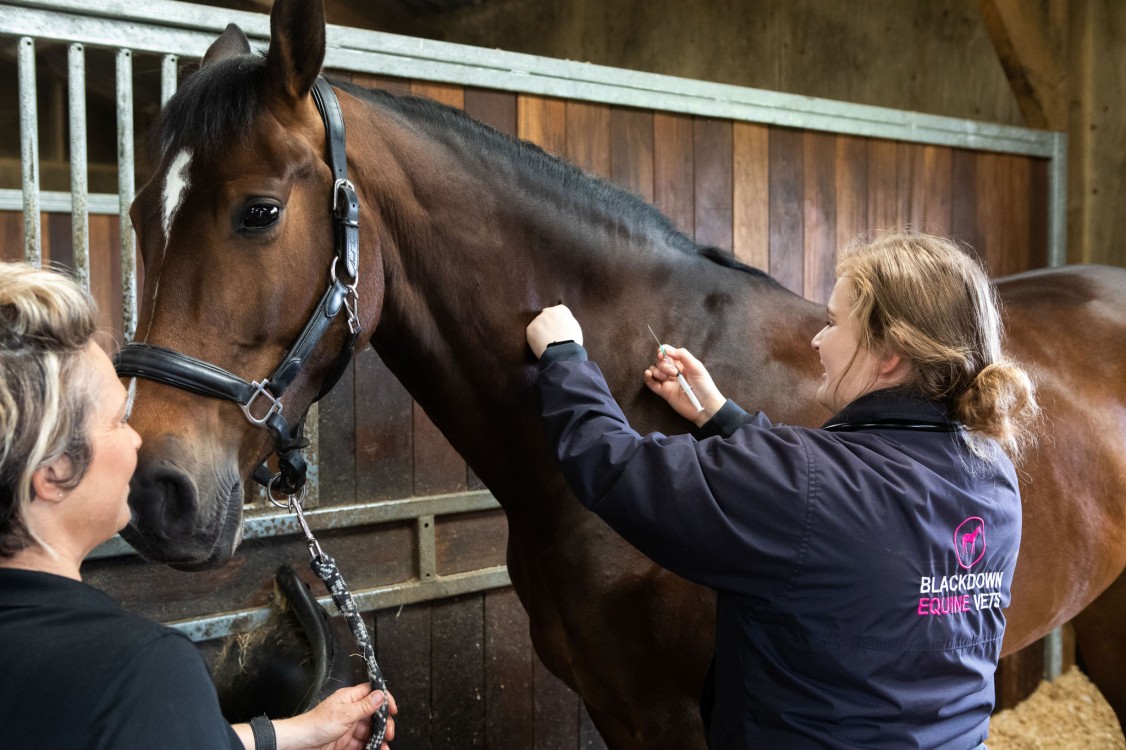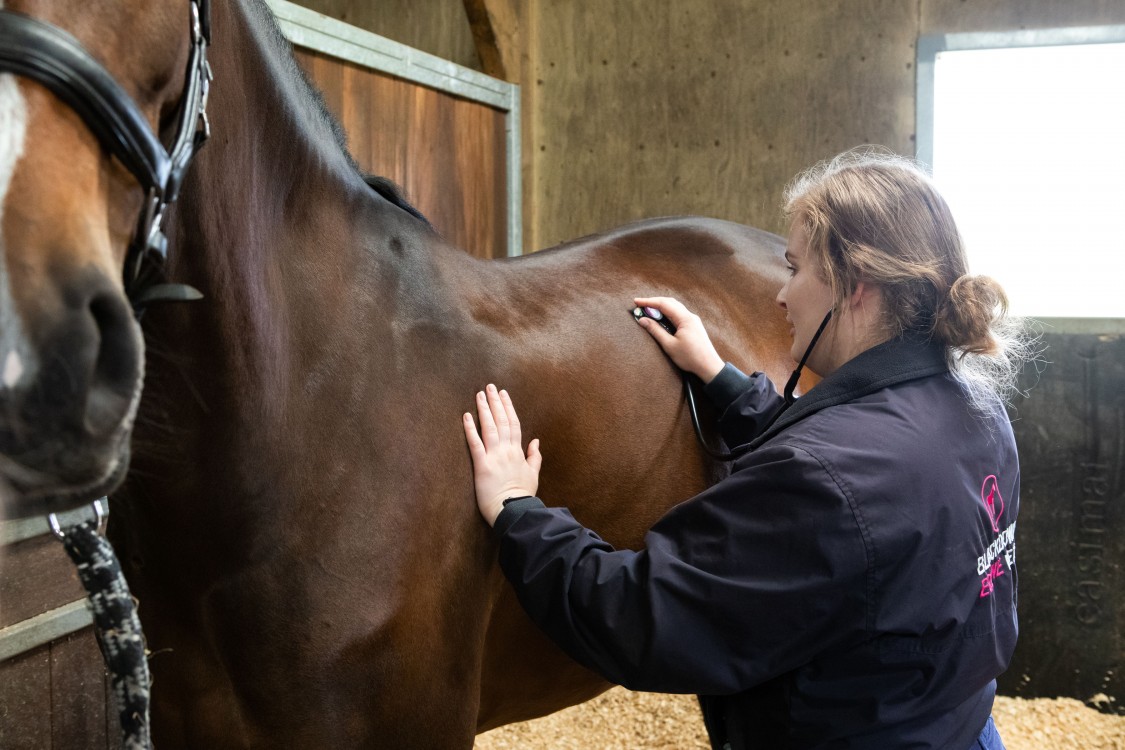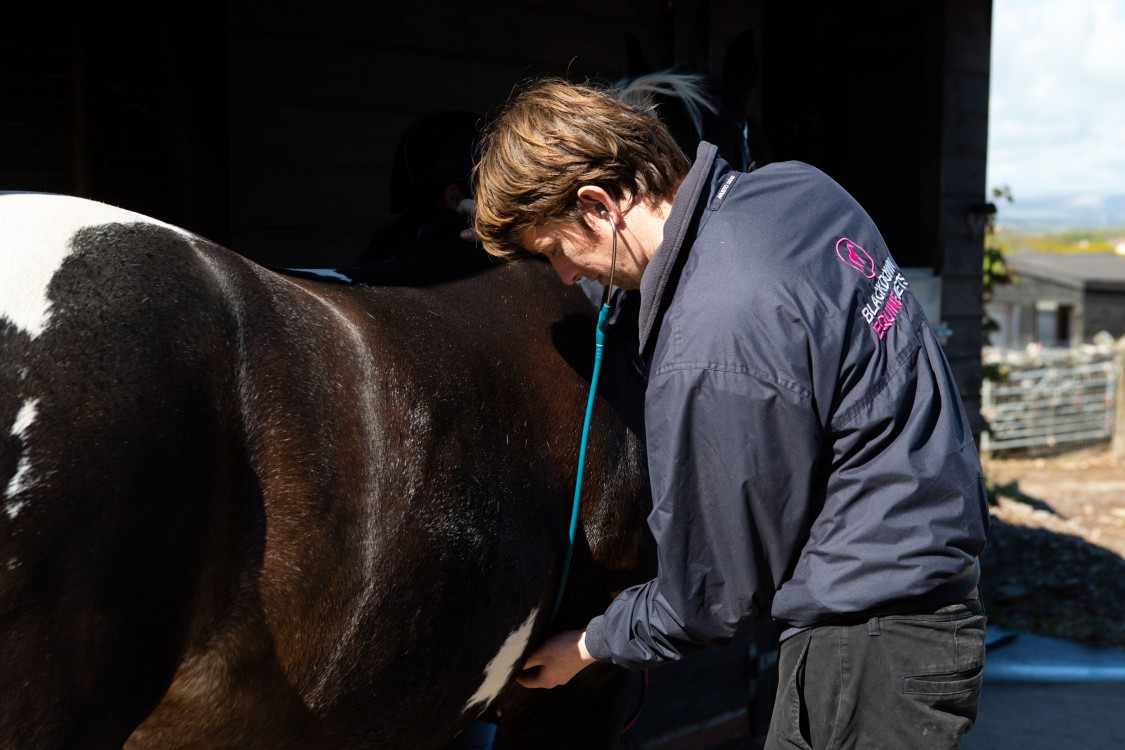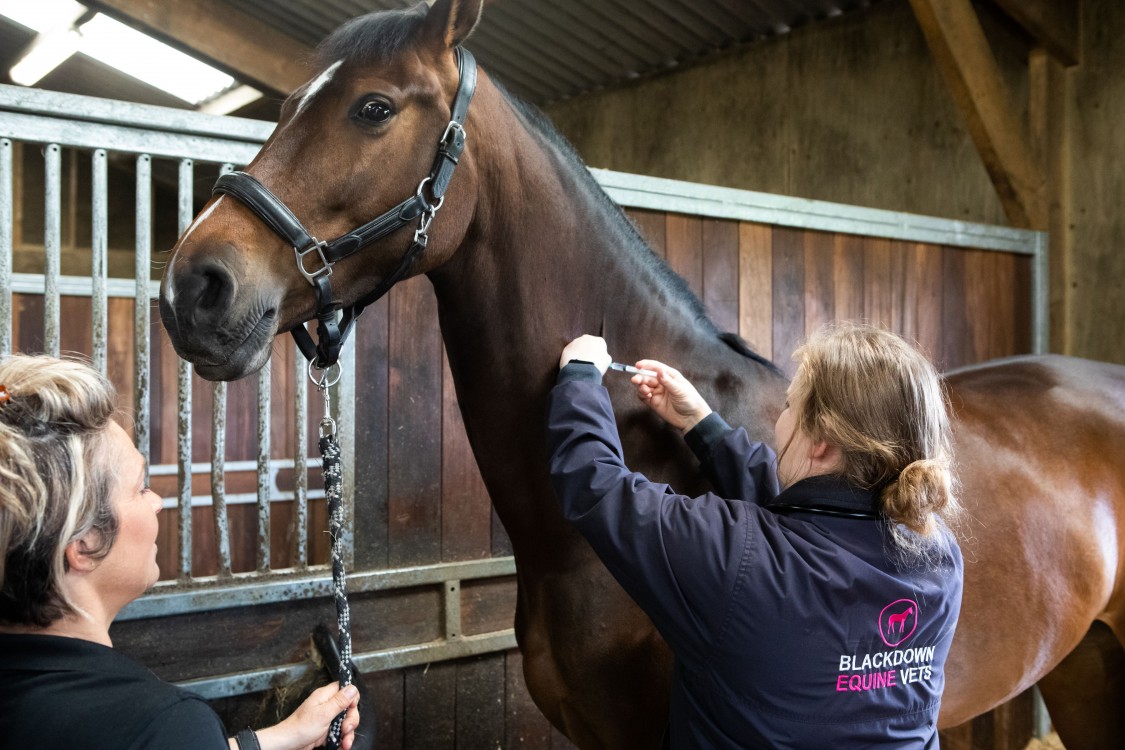We recommend the following vaccinations for your horse or pony; Equine Influenza, Tetanus and Equine Herpes Virus (EHV)
Regular vaccinations are a key part of the preventative care that owners should undertake for their horses or ponies as they can prevent some common but very serious diseases. Owners that compete should also remember that an up to date vaccination record is a pre-requisite for entry. Each of the competing governing bodies have different rules about how long after the vaccination courses horses can compete, and if additional boosters are required by them.




